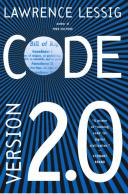Книга: Code 2.0
Where This Leads
Where This Leads
My argument so far has taken a simple path. In answer to those who say that the Net cannot be regulated, I’ve argued that whether it can be regulated depends on its architecture. Some architectures would be regulable, others would not. I have then argued that government could take a role in deciding whether an architecture would be regulable or not. The government could take steps to transform an architecture from unregulable to regulable, both indirectly (by making behavior more traceable) and directly (by using code to directly effect the control the government wants).
The final step in this progression of regulability is a constraint that is only now becoming significant. Government’s power to regulate code, to make behavior within the code regulable, depends in part on the character of the code. Open code is less regulable than closed code; to the extent that code becomes open, government’s power is reduced.
Take for example the most prominent recent controversy in the area of copyright — peer-to-peer filesharing. As I’ve described, P2P filesharing is an application that runs on the network. Filesharing networks like StreamCast are simply protocols that P2P applications run. All these protocols are open; anyone can build to them. And because the technology for building to them is widely available, whether or not a particular company builds to them doesn’t affect whether they will be built to — but demand does.
Thus, imagine for the moment that the recording industry is successful in driving out of business every business that supports P2P filesharing. The industry won’t be successful in driving P2P out of existence. This is because open code has enabled noncommercial actors to sustain the infrastructure of P2P sharing, without the commercial infrastructure.
This is not, obviously, an absolute claim. I am discussing relative, not absolute, regulability. Even with open code, if the government threatens punishments that are severe enough, it will induce a certain compliance. And even with open code, the techniques of identity, tied to code that has been certified as compliant, will still give government plenty of power. Thus, much of the argument from Part I survives this point about open code — if the world becomes certificate-rich, regulability still increases. The same conclusion follows if more code were burned into hardware rather than left to exist as software. Then, even if the code were open, it would not be modifiable[26].
But when designing an architecture for cyberspace, the margins matter. The values of a given space are not only the values of speech, autonomy, access, or privacy. They may also be values of limited control. As John Perry Barlow puts it, they are the values of a certain bug being programmed into the architecture of the Net — a bug that inhibits the power of government to control the Net perfectly, even if it does not disable that power entirely.
For some, the objective is to build code that disables any possible governmental control. That is not my objective. I certainly believe that government must be constrained, and I endorse the constraints that open code imposes, but it is not my objective to disable government generally. As I’ve argued already, and as the next part makes plain, some values can be achieved only if government intervenes. Government has a role, even if not as substantial a role as it would wish. We need to understand this role, as well as how our values might be advanced in the context of the Web.
One constraint seems clear in this account. As I argue more extensively later in the book, even if open code does not disable government’s power to regulate completely, it certainly changes that power. On the margin, open code reduces the reward from burying regulation in the hidden spaces of code. It functions as a kind of Freedom of Information Act for network regulation. As with ordinary law, open code requires that lawmaking be public, and thus that lawmaking be transparent. In a sense that George Soros ought to understand, open code is a foundation to an open society.
Even this is an important — some might say an essential — check on the power of government. But whether or not one is for transparency generally, my aim so far is just to map out the links. Regulability is conditional on the character of the code, and open code changes that character. It is a limit on government’s power to regulate — not necessarily by defeating the power to regulate, but by changing it.
- Conventions used in this document
- Why this document was written
- Terms used in this document
- Where to get iptables
- 10. FUTURE REVISIONS OF THIS LICENSE
- How to use this License for your documents
- Who did What, Where?
- Who Did What, Where?
- What This Book Is Not
- Purpose and Audience for This Book
- About This Book
- Conventions Used in This Book




